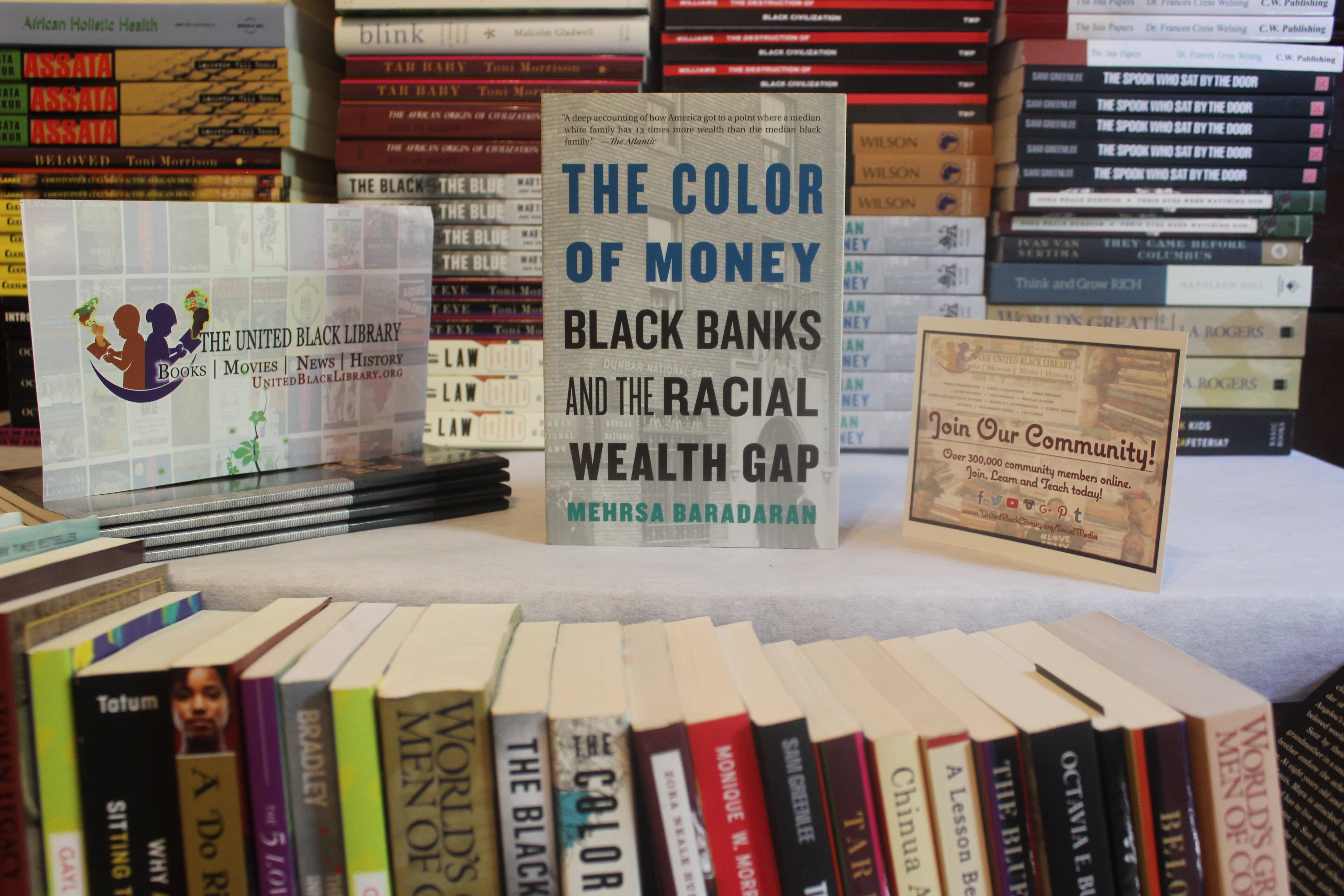
Today, the percentage of the black population is slightly smaller, but they still own only one to two percent of the wealth, an indictment of the lack of economic progress due to the presence of structural racism.īaradaran’s book is a particularly devastating attack on the idea that noninterference in the market, and the persistence of a segregated economic system, will be able to correct the huge gap in black and white wealth.

These books provide the deep historical context of racism and its outgrowth as segregation in our neighborhoods and banking systems.Īt the close of the Civil War and abolishment of slavery, blacks constituted 14 percent of the American population, yet owned 0.5 percent of the wealth.

Mehrsa Baradaran’s 2017 book, The Color of Money: Black Banks and the Racial Wealth Gap, is the ideal shelf-mate to Richard Rothstein’s The Color of Law: A Forgotten History of How Our Government Segregated America, published the same year. As explanations of the racial wealth gap and the persisting structural inequality of the U.S.


 0 kommentar(er)
0 kommentar(er)
